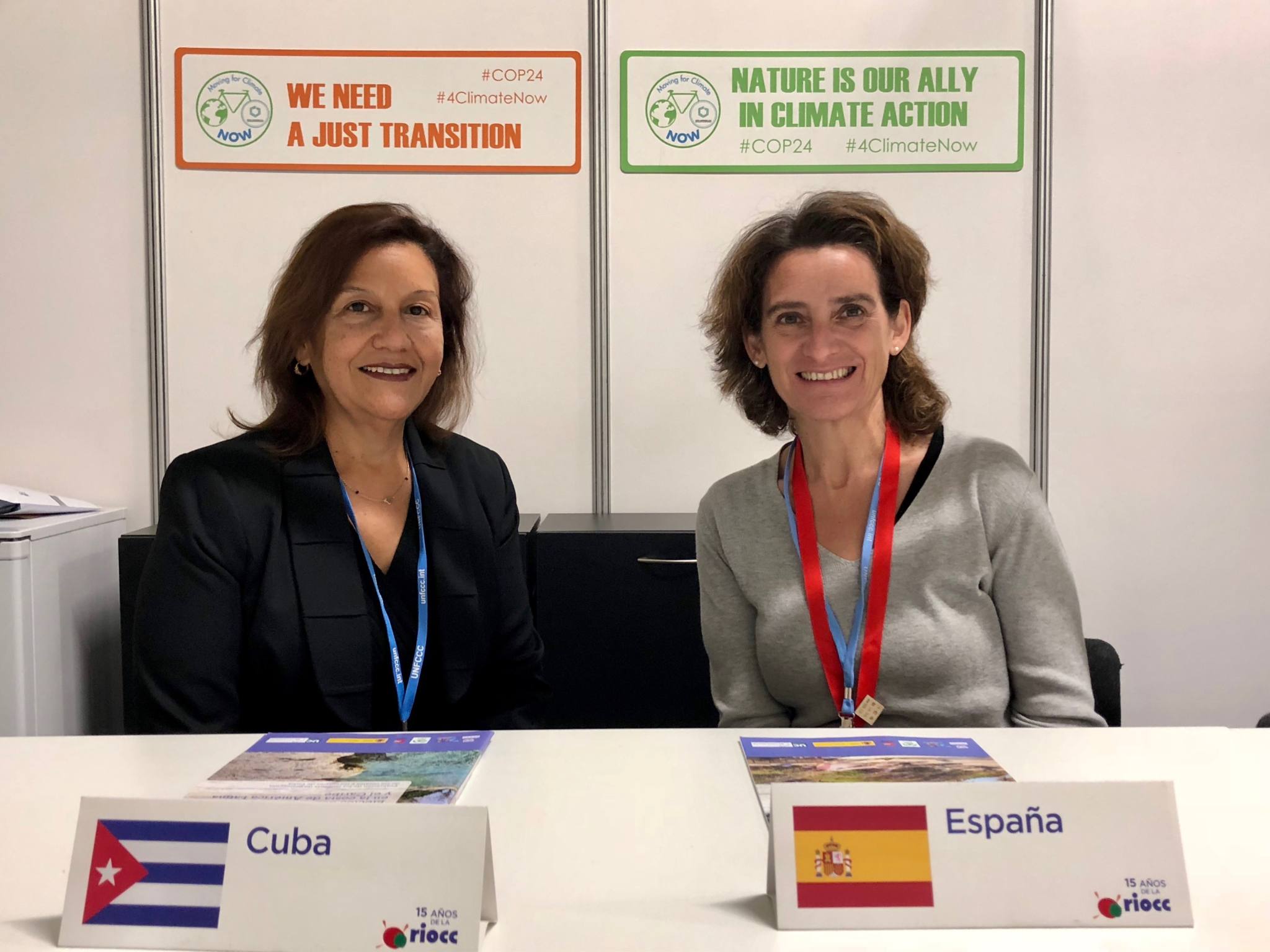NEWS
The Ministry of Ecological Transition delivered to the Cuban Government the results of a project to analyze the impacts of climate change on the coast.

The Minister for Ecological Transition, Teresa Ribera, today delivered to the Cuban government the results of a project that has studied the impacts of climate change in the north-western coastal area of the island.
The initiative, entitled “Strengthening capacities and tools for assessing impacts and vulnerability in the north-western coastal area of Cuba to hurricanes and climate change”, has had the participation of the Environmental Hydraulics Institute Foundation of the Universidad de Cantabria (IHCantabria) and the Cuban government itself, and has been financed through a contribution from Spain to the Economic Commission for Latin America and the Caribbean (ECLAC).
The area in which the project has been implemented is of extraordinary importance for the country as it brings together densely populated areas with high growth rates, as well as intense tourist, industrial and maritime-port activity.
For this reason, the assessment of risks in the face of climate change and extreme events has taken into consideration the human, environmental and socioeconomic dimensions to support decision-making and the determination of efficient adaptation policies and measures.

In addition, this initiative has created a high-resolution database to monitor climate risks and hurricane impacts in the area and has enabled the training of Cuban administration technicians in charge of these issues.
Ribera delivered the materials to the Minister of Science, Technology and Environment of Cuba, Elba Rosa Pérez, at a bilateral meeting held within the framework of the 24th Conference of the Parties to the Convention on Climate Change held in Katowice (Poland).
“We are very pleased that the Spanish and Ibero-American experience in the area of coasts and climate change, together with the Universidad de Cantabria and ECLAC, has served to promote this project”, said Ribera.
SPANISH EXPERIENCE IN COASTAL ADAPTATION
The Minister for Ecological Transition recalled that Spain, as a coastal country, is a pioneer in the development of tools to predict the impacts of climate change, limit them and protect the coast.
“Beyond the coastal sector, we are aware of the challenges faced by Cuba in the implementation of its climate change mitigation and adaptation priorities and I would like to reiterate our firm support, not only through the Ibero-American Network of Climate Change Offices (RIOCC) that we have been providing for some time, but also at the bilateral level.
The Spanish experience has been key in the development of this cooperation project with Cuba, thus giving continuity to the international cooperation work that the Spanish Executive has been developing through the RIOCC and also the Spanish Agency for International Development Cooperation (AECID).



